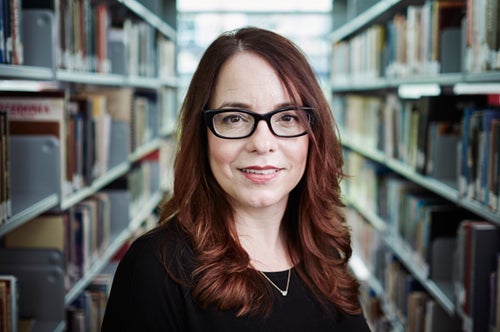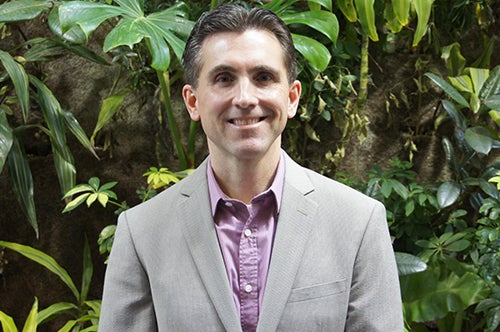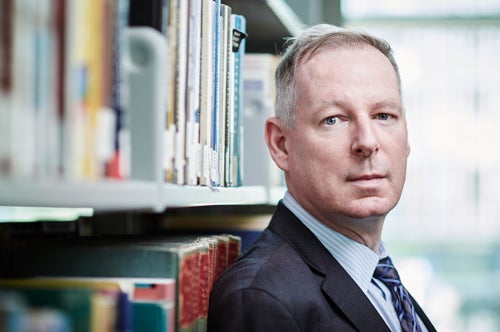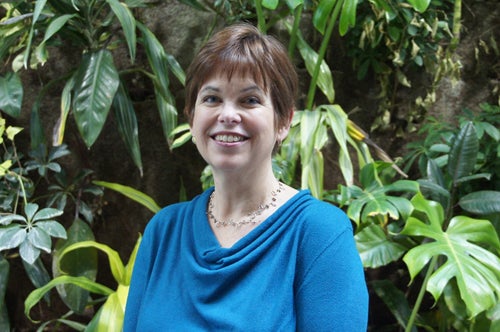
How to engage millennial university students
University of Waterloo’s distinguished teaching award winners make a difference with experiential learning

University of Waterloo’s distinguished teaching award winners make a difference with experiential learning
By Staff Marketing and Strategic CommunicationsEvery year four University of Waterloo professors are honoured with a Distinguished Teacher Award. They will receive their awards at the 2015 Spring Convocation ceremonies being held between June 9-13.
We asked the four winners to reflect on how they engage millennial learners:
Associate professor in the Department of History

I try to employ teaching strategies that help students play to their strengths. For example, some students love writing papers, others hate writing papers. So while students have to write in a history class (it’s a written discipline!), I try to have various types of assignments so that students can connect with content in different ways that energize their curiosity and learning. Students will sometimes choose written assignments and other times choose experiential learning projects, like connecting with music from the past or studying and recreating how people of the past expressed a theme in art or dressed or lived.
Associate professor and associate chair for undergraduate studies in the Department of Civil and Environmental Engineering

One important strategy for engaging millennial students is relevance. Most millennials have been raised in a manner that empowers them to question what they are doing and learning.
With this in mind, I make a strong effort to demonstrate to the students why the material in my course is important and where it fits into their overall program curriculum. I make clear references to material that they have learned in previous courses and discuss how we will apply these concepts in my course. I also routinely discuss how the course material in my course will be used in future courses and in their careers as civil engineers. I work in practical examples and I carefully craft my design assignments to be as realistic as possible so that the students begin to feel and think like engineers, and they appreciate why what they are learning is important.
I strive to make my lectures more engaging through dynamic and varied delivery. I use formal course notes that are about 75% complete, and the students and I complete the notes together in the lectures with me providing annotations using a tablet computer. This allows for more direct communication with the students and opportunity for discussion, and means less lecture time is spent by the students and me writing down information. Using a tablet computer allows me to complement the course notes with extra photos or videos, and to demonstrate concepts and applications using structural analysis and design software or simulations. I find that I am able to hold the students’ attention better with this combination of more direct communication and variety of media.
Associate professor in the Department of English Language and Literature.

I have found that the best strategy for engaging millennial students is just knowing the material and presenting it in an accessible but sophisticated manner. In assignments I encourage students to apply the theoretical tools they learn to fields that interest them, whether it be literature, advertising, digital design, politics, or propaganda. This leads to some fascinating essays and projects. I also try to explain, at every turn, why the concepts and problems under study are important. Once students have a sense of what is at stake, they are capable of doing remarkable work.
I often ask students to apply rhetorical principles by designing and creating artefacts, such as advertisements. I find that this exercise gives them a deeper understanding of how theory and practice inform each other.
Associate professor in Environment and Resources Studies and Teaching Fellow for the Faculty of Environment

It is an age-old preoccupation of educators; how to engage the present generation of current students who are seen as somehow different from the previous one. Sure, times change and so do the tools used by teachers. That said, so-called ‘Millenial’ students, much like students of the past, are more likely to take an active interest in their course work if they are given some agency and authority with respect to their own learning. I think of students as citizens: they have both rights and responsibilities. As much as possible, I like to give students the opportunity to create, research, and develop proposals that are then presented to an outside audience. Students are more often invested in their own learning if they think their work might have an impact on the wider community.

Read more
Meet the 14 exceptional students representing Waterloo’s newest grads

Read more
GreenHouse awards $10,000 to student ventures and changemakers aiming to transform livelihoods within disadvantaged communities

Read more
Meet the five exceptional graduate students taking the convocation stage as Class of 2024 valedictorians
The University of Waterloo acknowledges that much of our work takes place on the traditional territory of the Neutral, Anishinaabeg, and Haudenosaunee peoples. Our main campus is situated on the Haldimand Tract, the land granted to the Six Nations that includes six miles on each side of the Grand River. Our active work toward reconciliation takes place across our campuses through research, learning, teaching, and community building, and is co-ordinated within the Office of Indigenous Relations.